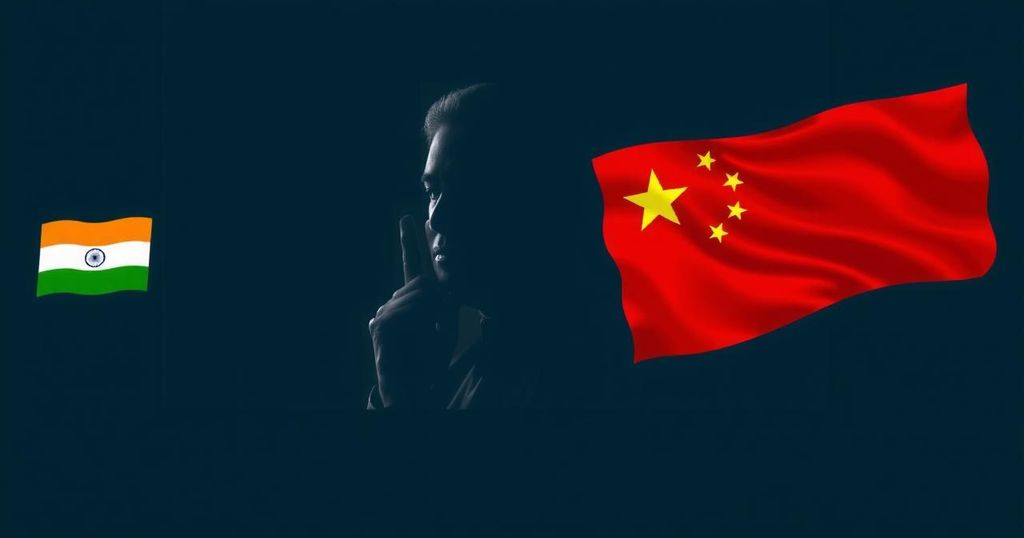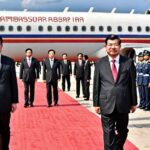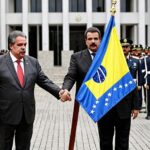Navigating Geopolitical Tensions: Sri Lanka’s New Leadership and Its Strategic Balancing Act
Sri Lanka’s newly elected president Anura Kumara Dissanayake faces the challenge of balancing relations with India and China, two influential regional powers. Following his election, he must navigate economic recovery while managing heightened expectations from both nations. Analysts predict a cautious balancing act, as past ties with China and emerging demands from India could conflict with Dissanayake’s political base.
Sri Lanka’s newly elected president, Anura Kumara Dissanayake, faces the critical challenge of managing the island nation’s relationships with two major regional powers: India and China. Following his surprising victory on September 22, 2024, against established political figures, Dissanayake must now deliver on his commitments to improve the economic conditions for Sri Lankans, implement good governance, and alleviate austerity measures mandated by international entities. Sri Lanka’s strategic location on vital shipping routes has historically made it a point of interest for both India and China, leading to a fluctuating influence between these two nations. Dissanayake, a member of the National People’s Power coalition and the People’s Liberation Front (known as Janatha Vimukthi Peramuna), is ideologically inclined towards China, which raises questions regarding his approach towards foreign investments moving forward. Political analysts highlight that while Dissanayake intends to maintain a balance between India and China, his capacity to do so will be put to the test. His victory has drawn immediate congratulatory messages from both Narendra Modi, the Prime Minister of India, and Xi Jinping, the President of China. It has been observed that Chinese investment in Sri Lanka had diminished following the backlash from excessive Chinese loans during the previous administration, which exacerbated the country’s economic turmoil in 2022. However, recent indications suggest that more Chinese financial influx may occur under Dissanayake’s presidency, potentially complicating India’s strategic concerns in the region. Historically, Dissanayake’s party has criticized what it terms “Indian expansionism” and has expressed resistance to decentralizing power to regions primarily inhabited by the Tamil ethnic community, which aligns with India’s national interests. Furthermore, Dissanayake’s election platform included a proposal to terminate an Indian-funded wind power project, labeling it a corrupt undertaking. As other South Asian nations lean towards China, Dissanayake’s presidency raises questions for India, given that several neighboring governments have aligned more closely with Beijing. Nevertheless, there are signs that Dissanayake is pragmatic, with efforts to engage India since his election victory, including meetings with Indian diplomats and acknowledging the importance of mutual stability and security in the region. Consequently, while Dissanayake’s Marxist roots suggest potential favoritism towards Chinese investment, he must also contend with domestic political pressures that may reinforce nationalist sentiments against India, compelling him to showcase stronger ties with China to consolidate his support base.
The geopolitical landscape surrounding Sri Lanka has long been characterized by a competitive relationship between China and India, two major powers in the region. Sri Lanka’s strategic position at a crossroads of some of the world’s busiest maritime routes has made it an attractive partner for both nations, each vying for influence. The newly elected President Dissanayake’s political identity and directions reflect a marked shift towards balancing the interests of both countries while dealing with the aftermath of a significant economic crisis and the burden of national debt resulting from prior engagements with China. His approach will be crucial in determining both Sri Lanka’s sovereignty and its geopolitical role in South Asia.
In summary, as Anura Kumara Dissanayake embarks on his presidential term, he must deftly navigate the delicate balance of diplomatic relations between India and China. The complexities of past economic dependencies and ongoing political pressures present formidable obstacles as he strives to address the needs of his citizens while safeguarding national interests. His administration’s success will depend on a nuanced approach that reconciles domestic demands with the realities of international relations.
Original Source: apnews.com








Post Comment